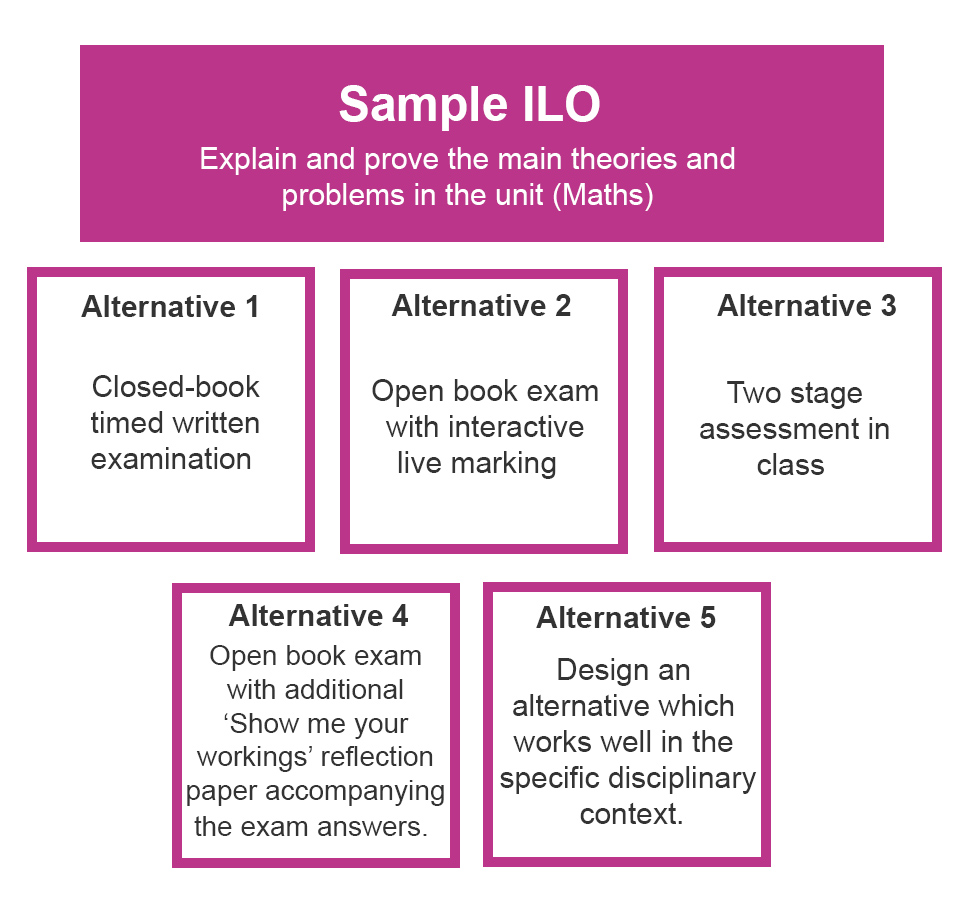Exam-type assessments

Commentary:
The effectiveness of closed-book exams is contingent on the kinds of questions asked and the teaching and problem sheets which precede the exam to ensure that it is not focused on memorisation. To increase learning and reduce memorisation, students may be supplied with the formulae and asked to apply them to problems, for example. Consider also the volume of exams which a student may be taking in a single assessment period.
Formative ideas to build student confidence in taking exams Use regular timed in class quizzes to encourage fast-paced problem-solving; instead of a mock exam, run a two stage exam as a formative task, and require students to reflect on their learning from it in their summative assessment.
Academic integrity and AI questions: Closed-book exams are secure against AI abuses, but need to be used in a balanced way across the programme, with complementary authentic assessments. This accords with the ‘Swiss cheese’ approach to securing academic integrity, where individual slices may have holes, but together they close the holes to guarantee that students have demonstrated their learning. It follows that invigilated examination, in one appropriate form or another, will feature as an assessment element in some programmes.
Further alternatives: Viva exam – an oral exam or interview; timed assessment – could require a different question design to compensate for the open book nature of the assessment
References
- Kay Sambell, Sally Brown, Phil Race, Heriot Watt University, ‘Alternatives to Traditional Exams’
- Indiana University Bloomington, ‘Alternatives to Traditional Exams and Papers’
- Allison S. Theobald, ‘Oral Exams: A More Meaningful Assessment of Students’ Understanding’, Journal of Statistics and Data Science Education (2021)
